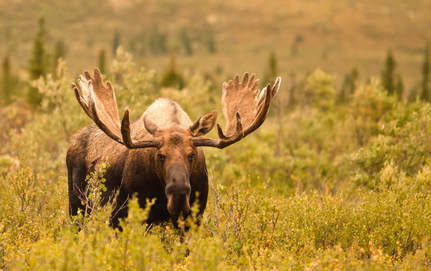Dehcho, Northwest Territories

Year(s) Funded: 2012-2013, 2013-2014
Topic Area: Food Security Contact: George Low ([email protected]) Partners: Dehcho First Nations Title: A Return to Country Food: Examining Risks and Benefits and Contaminant Perception on the Safety of Traditional Diet
Action: “Return to Country Food” workshops were hosted in Tthek’ehdeli (Jean Marie River) and Kaa’a’ge Tu (Kakisa). The workshops gave government and university researchers an opportunity to learn more about the climate change concerns of the Dene and Metis based on their traditional knowledge. The workshops provided participants the opportunity to discuss concerns and to network with each other. The researchers in turn brought scientific knowledge and information to the forum. The two ways of looking at things provided a better understanding of the ecosystem. A dietary survey was conducted to measure the importance of country food in the areas most affected by increasing mercury levels. This research explored the effects of climate change in the way that mercury bio-accumulates in the food chain and its effects on a reduction of consumption of fish in the local diet. Dene and Metis communities are affected by advisories resulting from mercury research. The community still has strong spiritual and cultural ties to the land are still reliant on country food that is directly affecting their life-style and diet. Results: The survey indicated that although many Dene and Metis have moved away from the hunting/trapping lifestyle to the wage based economy, they still treasure a diet which includes traditional food such as moose and fish. Workshops provided an opportunity for government and university researchers to learn more about the climate change concerns of the Dene and Metis based on their traditional knowledge. Developing relationships and networking was a key success of the project. There is recognition that climate change is real and both Western science and Indigenous Knowledge have a role to play in finding solutions. Successful adaptation to ecosystem change will require the traditional knowledge and skills on the land for Dene and Metis to become the very essence of their survival. Outputs:This project allowed for the collection of baseline data regarding traditional knowledge/observations through a survey. The results contributed to discussions about food security issues and needed adaptations due to climate change. |
“We need to be out there, we need to harvest and we need to bring children out there, to tell them stories; when the children are on the Horn Plateau they wonder, ‘Why aren’t Dene living up here? It is such a beautiful place.’ In our traditional way, we are doing our own research, assessing whether the fish is a fat fish, a healthy fish. We do this in conjunction with contaminant researchers who can tell us if there is anything wrong in the system.” Grand Chief Herb Norwegian |
